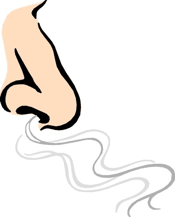September 16th, 2015
Tips for Intern Survival
Ahmad Yousaf, MD

Ahmad Yousaf, MD, is the 2015-16 Ambulatory Chief Resident in Internal Medicine at Rutgers New Jersey Medical School.
With the start of the residency year comes a new batch of excited residents who will have many of the same successes and failures as those who tread the path before them. They will quickly fall into cliché niches within the residency class: the gunner, the humanitarian, the slacker, the superstar, the researcher.
Their medically immature hands will explore their new environments the way my 2-year-old discovers that things that are hot will burn her and that sand is icky but shapeable and that every action has consequences. The new interns will learn that what comes out of their mouths can be the shovel that buries them with the scrubs of residency or the rocket that elevates them into the ranks of legendary residents before them. A few will reveal themselves as superstars, and a few unfortunates will come out on the dreaded bottom. The reality is that most residents are average, and average doctors are great!
So what are 8 (semi-serious) categories of residents that you do not want to become? If you are labeled as one of the following, your residency experience will be a bit rougher than it needs to be. And, then, 7 things that will help you be above average!
- Lazy/Apathetic: This is the category of death for an Internal Medicine intern. If you gain the reputation as the doc who does everything he or she can do to NOT do anything, you will have a hard time. Word travels through residency programs like poison gas. You may not know it is around but, by the time you realize you have been exposed, it’s too late to recover from the fumes. NEVER be the lazy one.
- Debbie Downer: Every resident complains. You should; it is natural to complain about the absurd torture that is residency: sleepless nights, stressful days, and immeasurable workloads, mixed in with the gumbo of constantly coming face to face with mortality and suffering. In fact, it would probably be strange if you did not commiserate with your colleagues after a long day of work. Debbie Downer, however, takes it to another level. Nobody wants to work with someone who never has anything positive to say. At the first chance for a break in the hectic day on the wards, the last thing a team of residents want to hear is one of their own constantly reminding them how bad they have it. You have to bite your tongue once in a while and try to find a silver lining, even if that silver lining is simply being able to go home at the end of the day.
- Always Late Guy/Gal: This is self-explanatory. If you want to get extra negative marks, walk in 10 to 15 minutes late with a cup of coffee, a perfectly crisp white coat, a big awkward smile on your unpunctual face, and muffin crumbs in your beard. Everybody wants to get home to their family, food, and bed… Don’t mess with that.
- Arrogantly Ignorant: In traditional Islamic scholarship there is this concept of simple vs. compounded ignorance. A teacher’s goal is to move people from compounded ignorance to simple ignorance and with that achievement, the teacher can claim that he or she did his or her job. The major ingredient that differentiates failure from success is the presence or absence of a dose of humility. Examples of each:
- Simple Ignorance — this is OK!
- Question: What is behind that wall?
- Answer: I do not know.
- This is a completely acceptable answer. In fact, we know you do not know! That is why you are here, to learn. Take it a step further and follow that up with, “I will go look it up,” and all of a sudden you look like a go-getter superstar!
- Compounded Ignorance — NOT OK!
- Question: What is behind that wall?
- Answer: There is a lion behind that wall… ?!?!
- The problem is this: You do not know what is actually behind the wall, because you do not yet have the tools to see over or behind it. You have confidently (and likely overconfidently) answered a question about which you had no clue. This is frustrating for team members and, more importantly, dangerous for your patients.
- Simple Ignorance — this is OK!
- Missing the Forest for the Trees: BUN went from 11 to 12, MCHC is at the lower limit of normal, and the patient’s left toe nail is a little green… The problem? The patient is hypotensive and crashing, and you have wasted 10 minutes telling me that he has a pet dog with a family history of anxiety, and you forgot to mention the meningeal signs you elicited on exam. Sometimes you have to take a step back, take a deep breath and reassess. Asking your seniors will also help big time.
- Jaded on the First Day of Residency: You have no reason to be jaded on your first day of residency. If, by the end of your first week, you come into work with beard stubble, a stained white coat, a litany of derogatory things to say about ‘all of the drug-addicted low-lifes’ for whom you provided care, and you sigh every time you get an admission, you may need to check yourself. You should be coming up with wide differentials with zebras at the bottom and not just be assuming that your poor patient is ‘just another drug-seeker.’
- The Rambler: Say what needs to be said and nothing more. Present objective facts and not how you feel about every ‘normal’ or ‘abnormal’ finding. You are an intern, and your job is to collect and disseminate information while learning during the process. One of the most painful things to see is a resident who does not know when to say nothing… Do less talking and more nodding and listening, and you will be golden.
- Improper Hygiene: How expensive your clothes are does not matter… whether they are clean and ironed does matter. I am a proud member of the Marshall’s and Kmart clubs, and they have worked out just fine for me. Hygiene includes smelling ‘neutral.’ No heavy cologne or Axe spray required… you are getting very up close and personal with many people, and their nostrils will appreciate not smelling you (good or bad).
So far, I have given you insight on what to avoid. Here are some things you can do to rise to the top and survive that first year of residency:
- Come to work on time, and be grateful for the opportunity to treat people and to make a phenomenal living while doing so.
- Keep your head down, and get the work assigned to you done before you go home. You would be surprised how just doing exactly what you are instructed to do in the expected time translates into people knowing that you are ‘one of the good ones.’
- Recognize that perception is everything. This may often seem (or be) unfair, but no matter how smart, efficient, and compassionate you are, if you have an image problem or a bad reputation, it is very hard to shake.
- Be optimistic! You are in a field many would love to be in. You get to be closely involved with people who are at the most vulnerable moments of their lives; accept the responsibility, and own it.
- Know your strengths and weaknesses. If punctuality is a weakness for you, plan to get to work 15 minutes earlier than you have to. Not being punctual can really ruin the reputation of an otherwise solid resident. If you’re bad at documentation, spend extra time on it. (If you’re good at it, help your colleagues!)
- Remember that nobody in the room knows everything and that nobody expects you to know everything either. Be willing to be humble and say you do not know. Use this as a motivation to go find the answer in a book or through a senior/attending.
- Usually interns have the most book/basic science knowledge on their team, but the least clinical sense. This is expected, because the only way you pick up the latter is with sheer volume and exposure. You need to see everything many times before your Doctory Spidey Sense becomes reliable. Give yourself a break and be willing to make controlled mistakes so that you can learn what really matters.
That’s it! You got this! Keep your head up, caffeinate often, and ask your seniors/chiefs for help. You are going to be great!
~Yousaf








Thank you so much.
I was looking for some tidbits before starting training in IM.
Kudos.
No problem! I am happy you found it useful.
This is spot on Dr. Yousaf!
Thanks for giving me great material for next year’s residency program orientation 🙂
Anything to make resident orientation a less painful experience! 😉
So you are my clone, awakened with the “wisdom” I’ve gained from four decades of doing and saying what you have so eloquently written. Truth out of the “mouths of babes”. And you are a babe from my perspective. Continue in your wisdom. I wish I had been so wise at your age.
Steve Sullivan (retiring on 31 December 2015)
Thank you for the kind words. Congratulations on your retirement!
Excellent insights and advice. I would add a ninth category: the dumper. Unfortunately this creature also lives on to be a partner in private practice. Characterized by failure to address problems , especially in second part of workday or shift. Exit strategy is to repeat labs or X-ray or vital signs so that results will be called to coverage when “dumper” is sipping his first beer. Often times no sign out given and no plan of action formulated.
The dumper would be an awesome addition to this list!